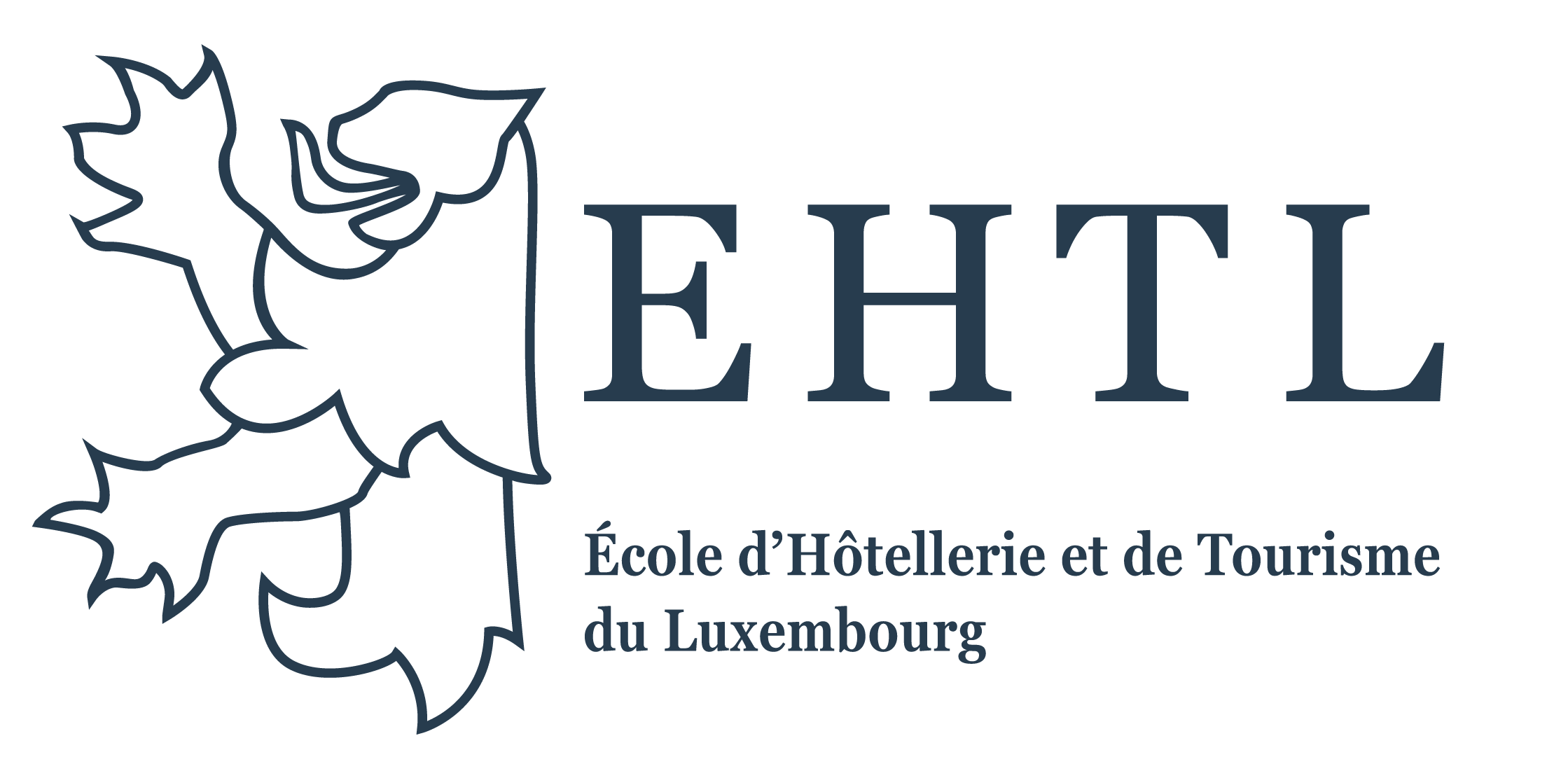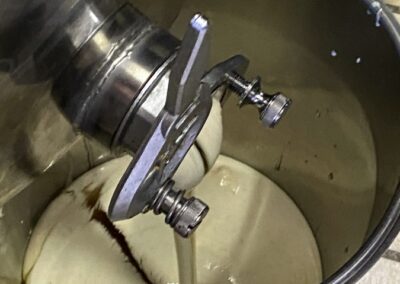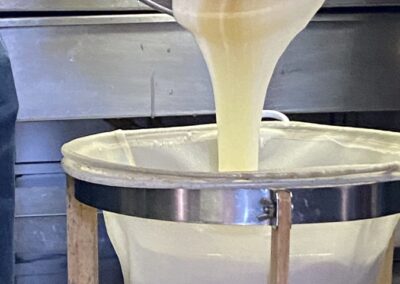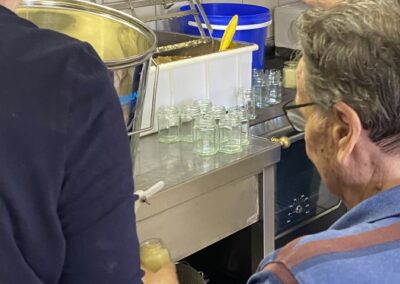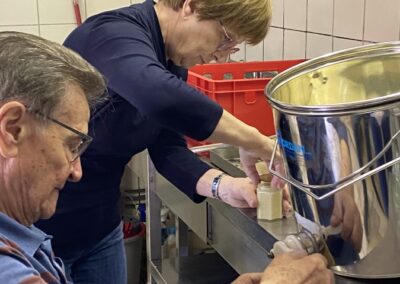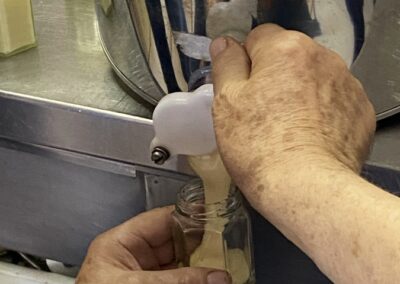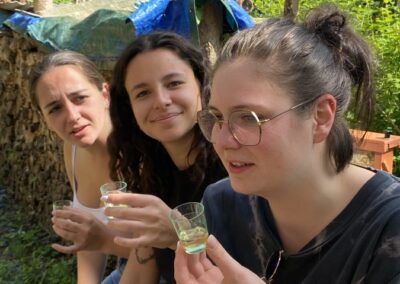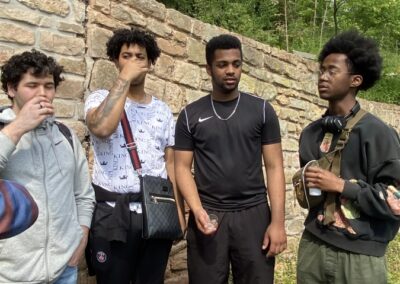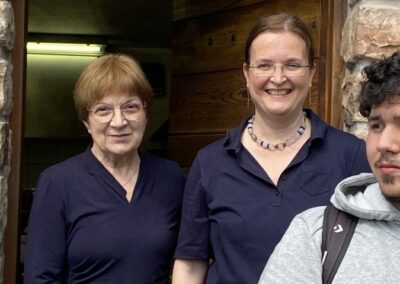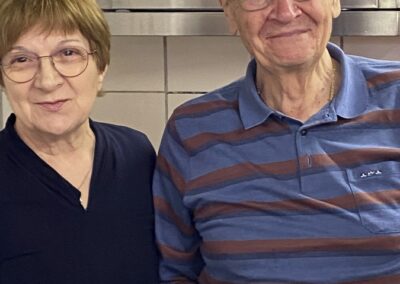Educational outing
Honey is a particularly popular product at the EHTL, as shown by the ‘Honey Cooking Competition’, organised since 1980 in collaboration with the Fédération des Unions d’Apiculteurs du Grand-Duché de Luxembourg. For four decades now, the students have been demonstrating their inventiveness and creativity in devising new starters, dishes and desserts. Their creations have even given rise to a recipe book.
But what is the production cycle of this food, harvested by man since prehistoric times? Last spring, 17 final-year students went to meet Mr. Antonio Pretti, whose beehives are partly located at the Härebierg. The beekeeper explained the organisation of the swarm, the role of the queen, the workers and the males, as well as the different types of honey obtained according to the flowers from which the bees have collected nectar. The demonstration of the extraction of honey from a removable frame was followed by a tasting session which delighted the pupils.
The young people also became aware of the crucial role played by bees in the pollination of our vegetable gardens and orchards, as well as the harmful effects of pesticides, urban development and pollution. Mr Pretti leads the way: he has been committed to nature conservation for 30 years and does not hesitate to plant flowers and apple trees for the bees. In addition to a jar of honey and a candle, the students left with a concrete example of sustainable development.
But what is the production cycle of this food, harvested by man since prehistoric times? Last spring, 17 final-year students went to meet Mr. Antonio Pretti, whose beehives are partly located at the Härebierg. The beekeeper explained the organisation of the swarm, the role of the queen, the workers and the males, as well as the different types of honey obtained according to the flowers from which the bees have collected nectar. The demonstration of the extraction of honey from a removable frame was followed by a tasting session which delighted the pupils.
The young people also became aware of the crucial role played by bees in the pollination of our vegetable gardens and orchards, as well as the harmful effects of pesticides, urban development and pollution. Mr Pretti leads the way: he has been committed to nature conservation for 30 years and does not hesitate to plant flowers and apple trees for the bees. In addition to a jar of honey and a candle, the students left with a concrete example of sustainable development.
